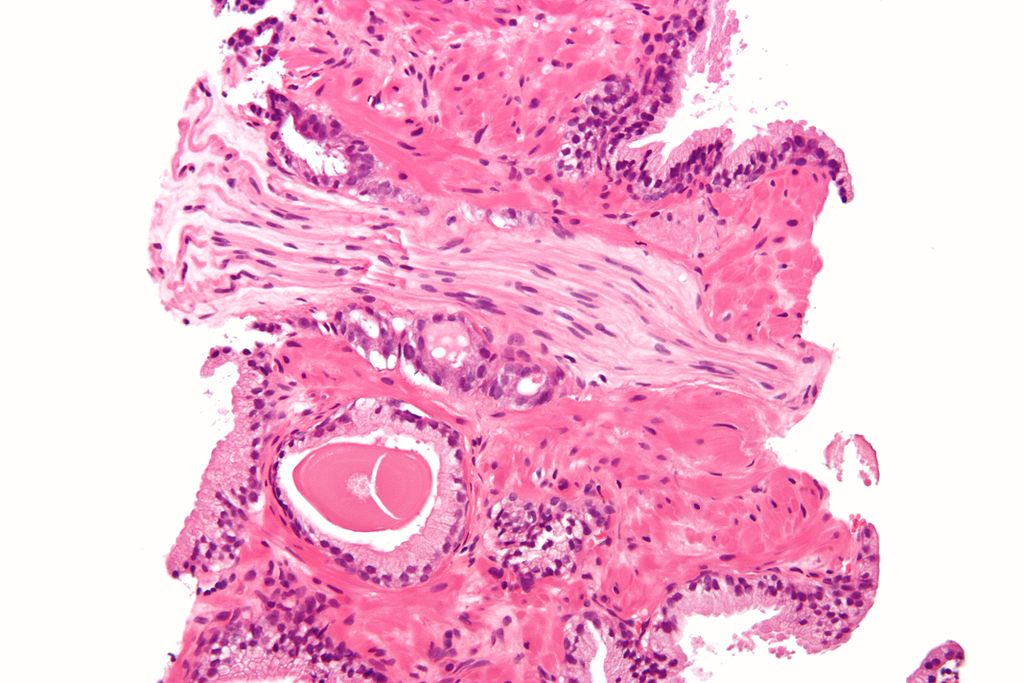Novel Urine-based Liquid Biopsy for Early Detection of Aggressive Prostate Cancer
By LabMedica International staff writers
Posted on 27 Apr 2021
A recent paper described the development of a new urine-based test for the detection of aggressive prostate cancer, which promises improvement upon current biomarker assays.Posted on 27 Apr 2021
Investigators at the University of Michigan (Ann Arbor, USA) explained that despite advances in the field, early detection of aggressive prostate cancer (PCa) remains challenging. Among these advances was a clinical-grade urine test (Michigan Prostate Score [MiPS]) for individualized aggressive PCa risk prediction that had been developed by the same group of investigators. The MiPS combined serum prostate-specific antigen (PSA), the TMPRSS2:ERG (T2:ERG) gene fusion, and PCA3 lncRNA (long noncoding RNA) in whole urine after digital rectal examination (DRE).

Image: Micrograph showing a prostate cancer (conventional adenocarcinoma) with perineural invasion (Photo courtesy of Wikimedia Commons)
In the current study, the investigators sought to improve on MiPS with a novel next-generation sequencing (NGS) multi-biomarker urine assay for early detection of aggressive Pca.
To do this, the investigators created a urine-based liquid biopsy technique that employed next-generation genomic sequencing to analyze RNA in samples collected from men following a digital rectal exam. Machine learning was used to identify 15 RNA transcripts that together comprised the new Urine Prostate Seq [UPSeq] test.
The UPSeq model was trained on 73 patients and validated on a set of an additional 36 patients representing the entire prostate cancer spectrum, from benign to grade group (GG) five Pca. The area under the receiver operating characteristic curve (AUC) of UPSeq was compared with PSA, MiPS, and other existing models/biomarkers for predicting GG three or higher PCa.
Results revealed that UPSeq demonstrated high analytical accuracy and concordance with MiPS, and was able to detect expressed germline HOXB13 and somatic SPOP mutations. These results underlined the potential utility of this novel urine-based RNA NGS assay to supplement PSA for improved early detection of aggressive Pca.
“The problem is that a patient can have multiple areas of cancer in the prostate and these areas may be different than each other,” said senior author Dr. Simpa Salami, assistant professor of urology at the University of Michigan. “Because of this, both prostate biopsies and MRI scans can miss evidence of aggressive disease. So, this urine test is designed to tell us what is really happening throughout the whole prostate. A novel aspect of this test is that it can detect inheritable mutations in the HOXB13 gene that could warn us that the patient’s family members may also be at higher risk for prostate cancer.”
The UPSeq test was described in the March 31, 2021, online edition of the journal European Urology Oncology.
Related Links:
University of Michigan













